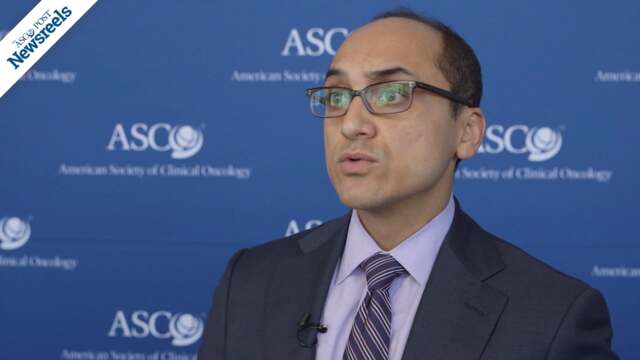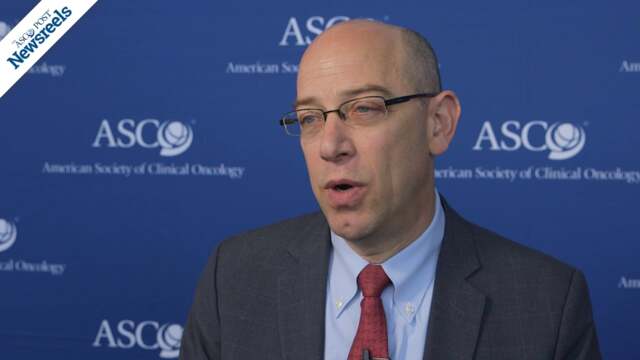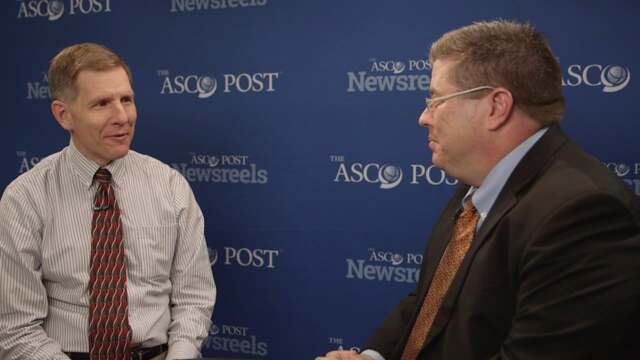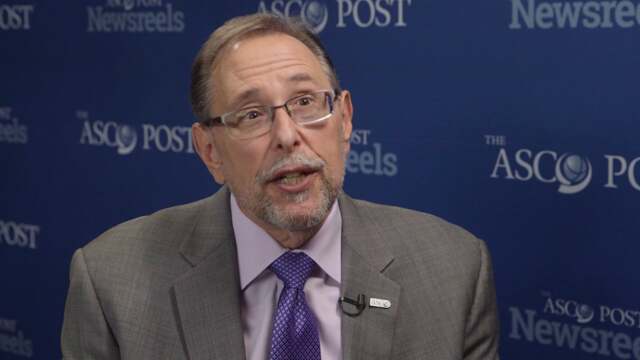Sumanta K. Pal, MD, and Toni K. Choueiri, MD, on Urothelial Carcinoma: Efficacy of an FGFR Inhibitor
2016 ASCO Annual Meeting
Sumanta K. Pal, MD, of City of Hope, and Toni K. Choueiri, MD, of Dana-Farber Cancer Institute, discuss findings on BGJ398 in patients with previously treated advanced/metastatic urothelial carcinoma with FGFR3 alterations (Abstract 4517).
Yousuf Zafar, MD, of Duke Cancer Institute, summarizes his educational lecture on the financial toxicities of treatment and the need to focus on both short- and long-term interventions to reduce the burden on patients.
Charles M. Rudin, MD, PhD, of Memorial Sloan Kettering Cancer Center, reports on the encouraging anti-tumor activity of this antibody drug conjugate against one of the most deadly malignancies: recurrent or refractory small cell lung cancer (Abstract LBA8505).
Anthony J. Olszanski, RPh, MD, of Fox Chase Cancer Center, and Michael A. Davies, MD, PhD, of the University of Texas MD Anderson Cancer Center, discuss this phase III study of dabrafenib plus trametinib vs dabrafenib monotherapy in patients with unresectable or metastatic BRAF V600E/K-mutant cutaneous melanoma (Abstract 9502).
Antonio Palumbo, MD, of the University of Torino, discusses in Italian this phase III study of daratumumab, bortezomib, and dexamethasone versus bortezomib and dexamethasone in patients with relapsed or refractory multiple myeloma (Abstract LBA4).

To see the English language version of this video, please
click here.
Richard L. Schilsky, MD, ASCO’s Chief Medical Officer, discusses the key presentations at this year’s conference.





